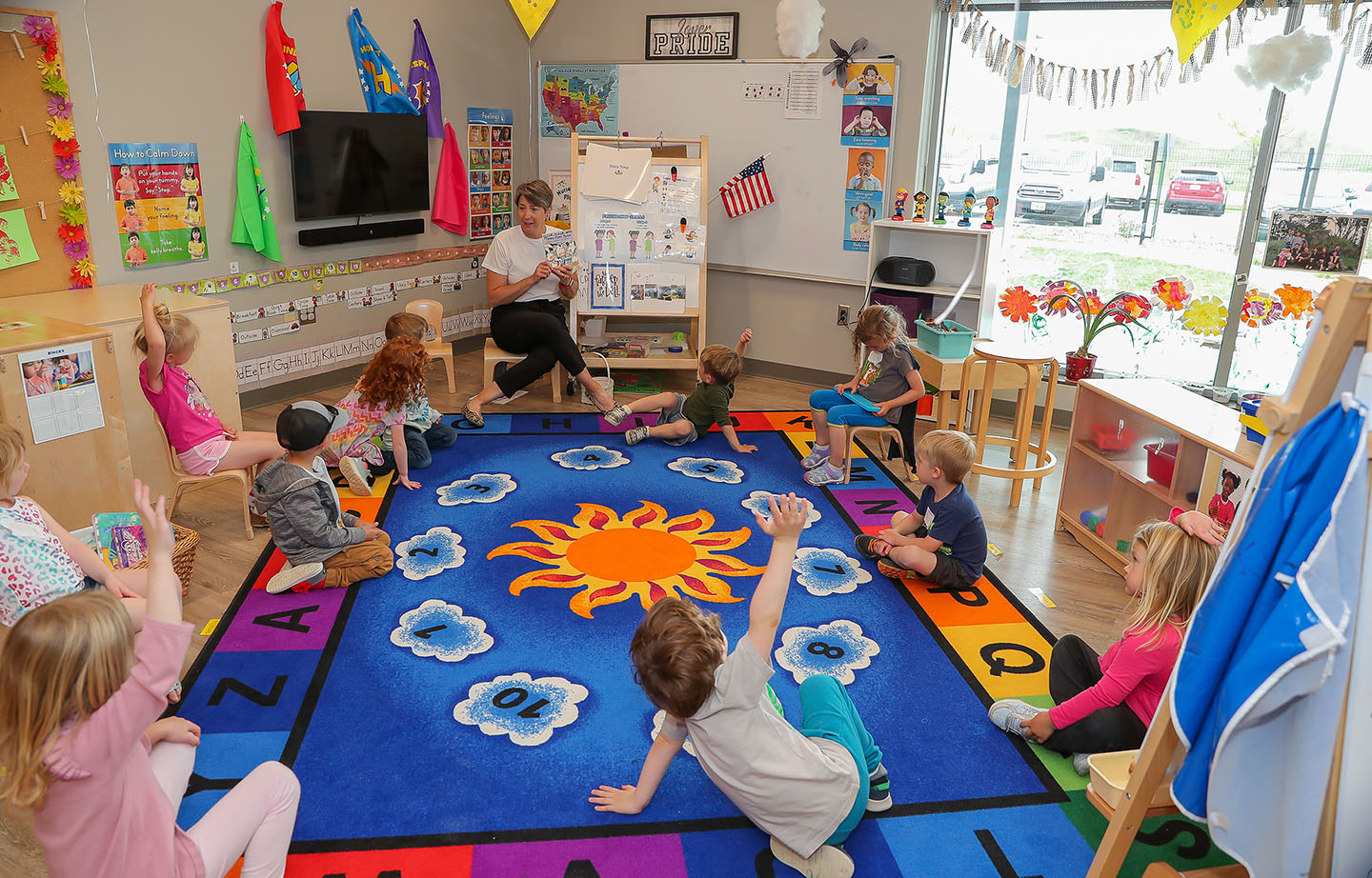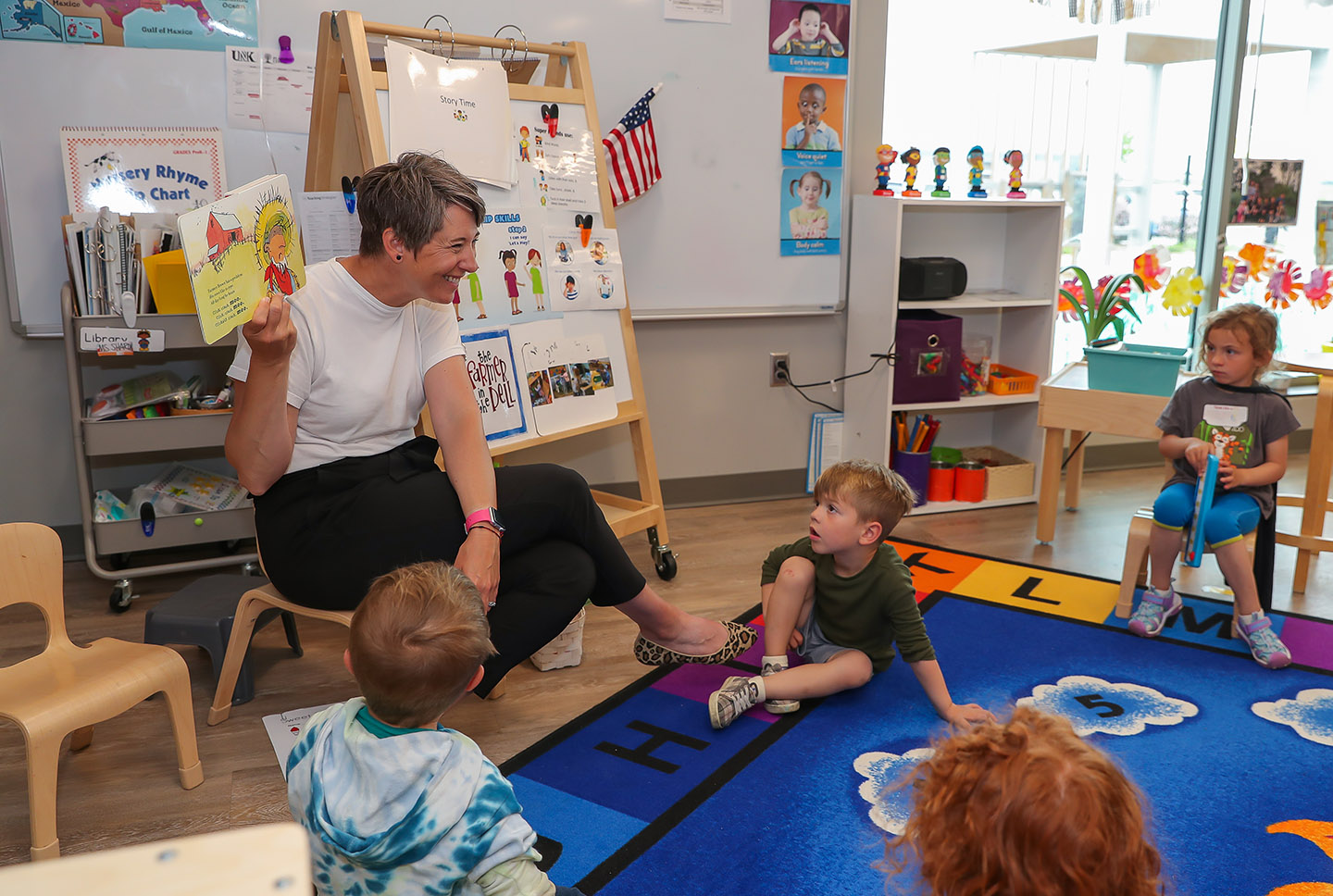UNK receives $2M in federal funding to address state’s early childhood workforce shortage – UNK News

By TYLER ELLYSON
UNK Communications
KEARNEY – The University of Nebraska at Kearney is receiving $2 million in federal funding to support and expand the state’s early childhood education workforce.
Recently approved by Congress, the funding from the U.S. Department of Education will allow UNK and its partners to create a community-based workforce development initiative aimed at improving access to high-quality early childhood education in rural Nebraska.

“Families across this country often have a tough time finding affordable, quality child care – in both our rural and urban areas. Here in Nebraska, we’re taking action to address that,” said U.S. Sen. Deb Fischer, who sponsored the federal appropriation.
“The KNEW initiative will create an innovative program aimed at giving early childhood education providers the tools and resources they need. I was proud to secure funding for this critical initiative, which will benefit more than 25 communities in our state,” Fischer continued.
Led by Philip Lai, an associate professor in the UNK College of Education, the Knowledge Network for Early Childhood Education Workforce (KNEW) is a first-of-its-kind initiative that will bring stakeholders from across the state together to come up with collaborative solutions to a common and persistent problem.
According to a 2023 report from the nonprofit Voices for Children in Nebraska, 84 of the state’s 93 counties do not have enough spots in licensed child care facilities to meet the potential demand. Nine of those counties were classified as “child care deserts,” with no licensed facilities available for families living there.
The KNEW project focuses on early childhood educator recruitment and retention, as well as networking and professional development.
“The federal funding for this project will allow UNK to have a greater reach across all of rural Nebraska to help solve the early childhood workforce shortage in our state,” Lai said. “We plan to develop collaborative community partnerships, create and share content for professional development, and engage in outreach alongside organizations with shared interests in early childhood education.”

UNK will serve as a hub for the initiative, with the Buffett Early Childhood Institute at the University of Nebraska also contributing as a collaborator. Other educational partners include Nebraska Extension and local Educational Service Units.
By creating a “teaching toolkit,” the project team aims to enhance pre-service and in-service training for early childhood educators and provide them with additional resources and expertise. Ultimately, they hope to see retention rates rise along with the quality of instruction.
They also plan to connect with businesses, chambers of commerce and other community organizations, establishing a network of stakeholders with a shared vision.
“Having support at the local level can go a long way in supporting early childhood educators in these rural communities,” Lai said. “In addition, we want to increase the communication within and across these communities. A lot of times, communities next door to each other don’t know what is happening in other towns – what’s working, what isn’t working, what can be improved – so we want to act as a bridge and create and strengthen those social networks.”
No matter where they live, most Nebraskans agree that early childhood educators are essential to their community’s survival. They support working parents, allow businesses to recruit and retain employees and help develop the state’s future workforce.
A 2020 report from First Five Nebraska, another nonprofit that advocates for early child care and learning, estimates that inadequate access to child care costs Nebraska families, businesses and state tax revenues nearly $745 million annually in direct losses.
“Early childhood education has an impact on the entire economic ecosystem. Without people working in early childhood education, members of families have to drop out of the workforce to take care of their children,” Lai noted.
A more recent survey from Nebraska Extension and We Care for Kids shows that almost a third of parents with children ages 5 and younger left the workforce because they couldn’t find affordable child care, and 74% of respondents believe a lack of quality, affordable child care and early learning is a serious problem in Nebraska.
More than 80% of those surveyed agree that Nebraskans must work together to solve this problem.
The KNEW initiative was developed with that goal in mind.



